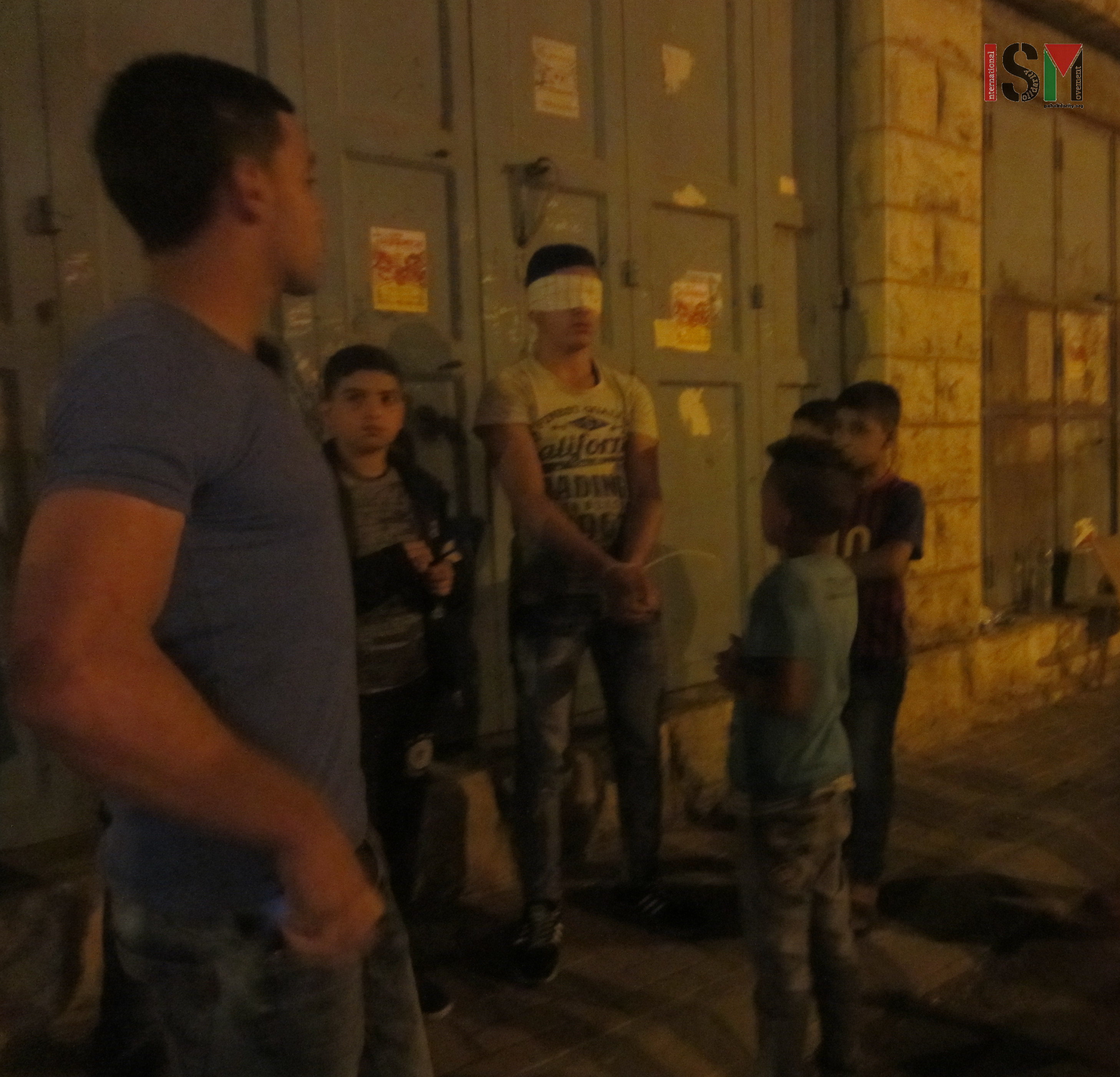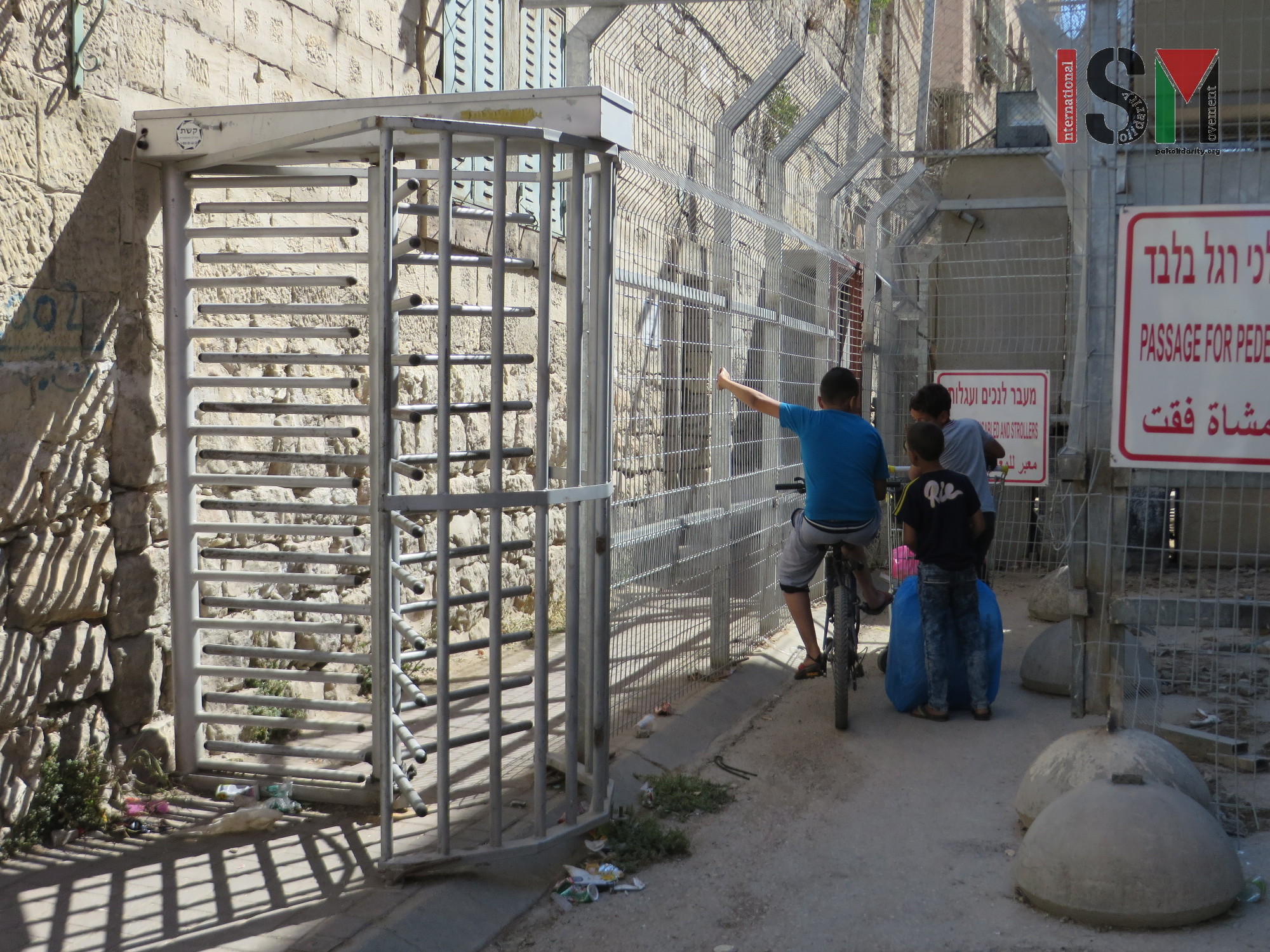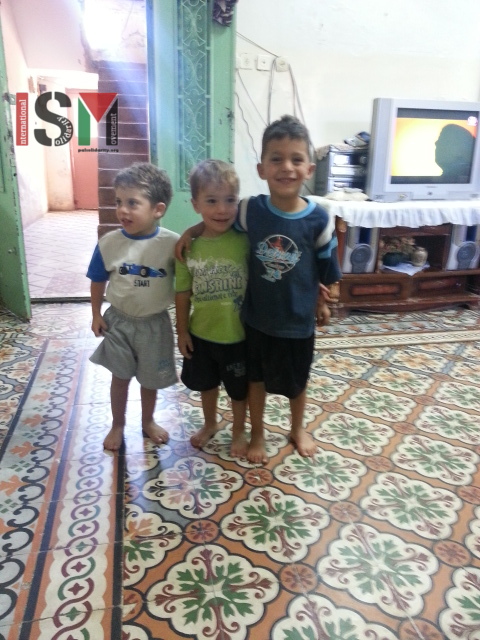Category: Hebron
-
Three Palestinian boys violently arrested at night in Hebron
21st September 2015 | International Solidarity Movement, Al-Khalil Team | Hebron, Occupied Palestine Monday the 21st of August three boys were arrested in the Tel Rumeida area of Hebron, occupied Palestine. The boys were arrested at 8:45 pm and taken to the military base in Tel Rumeida. Two of the boys were arrested after allegedly…
-
Israeli forces targeting Palestinian children in al-Khalil (Hebron)
Everyday, Palestinian families get attacked by Israeli forces in their own homes. Sometimes they bang on the door in the middle of the night, scaring children and adults, ransacking the house. On some of these raids, both during the night and in daytime, Israeli forces randomly arrest family members and take them to an unknown…
-
Settler violence escalates in the vicinity of Kiryat Arba illegal settlement
19th September 2015 | International Solidarity Movement, Al-Khalil Team | Hebron, Occupied Palestine The children of the Jabari family in Jabari neighbourhood of al-Khalil are singing along to a Palestinian children’s television show. It is a sunny Saturday morning but in the small living area, six tiny children sit with their mothers who explain to…



